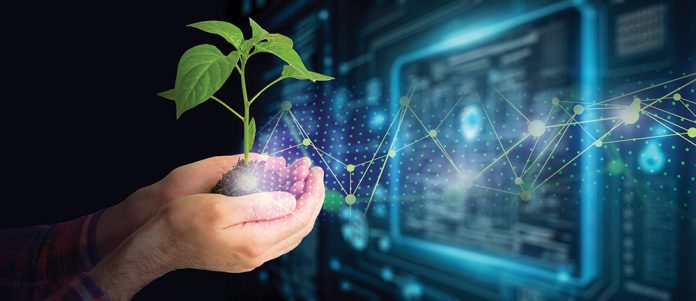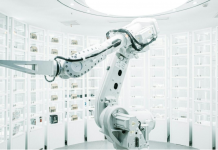Technology is a powerful – yet surprisingly under-utilised – tool in chemical supply chains. Now is the time to harness its full potential, using collaboration and data as the catalysts, says Arvind Ambo, Global Vertical Excellence Manager at A.P. Møller-Maersk.
While many industry verticals have embraced rapid digitalisation in their supply chains, the chemical industry lags behind.
Challenges in this industry are multi-faceted. Taking the example of the Agrichemicals sector which is vast in size and diverse in its product portfolio, supply chains need to perform across a huge geographical spread in order to fulfil regulatory requirements and must flex to demand driven by the vagaries of weather.
Yet despite these complex challenges, Maersk sees a rich seam of opportunity for chemical logistics. Technology will not only secure the future health and wealth of these supply chains, but it also has immense benefits for consumers of their products too.
Maersk is focused on three main objectives for their chemical industry customers:
- Securing the move from predictable to predictive
- Enabling superior and more confident decision-making
- Developing far more sustainable and responsible supply chains
Ambo acknowledges that the traditional ‘one size fits all approach’ no longer works in today’s fast-paced manufacturing environment. This acceleration only makes the search for dynamic and agile solutions all the more compelling.
Ultimately the chemical supply chain is the pillar on which almost all other supply chains depend, as 96% of all goods we consume contain some magnitude of chemicals in them. However, Maersk appreciates that each producer’s imperatives are very different, with different outcomes, and digital solutions must be tailored accordingly.
Ambo says: “I’d like to stress that although Maersk is the leading end-to-end global integrator of container logistics, we don’t pretend to have all the answers. However, we do know what needs to be done and why.
“In this respect, Maersk is extremely well-placed to source and implement the right solutions. We are very privileged to enjoy such close partnerships with our customers, evaluate in depth how technology can transform their supply chains, and turn that potential into reality.”
Tech’s role in agrichemicals
Ambo explains that the agrichemicals industry is a perfect fit for digitalisation. “It’s a very competitive space which includes very large organisations and smaller regional champions. Manufacturing is spread out globally, but there are highly focused agri-zones such as Latin America.
“And over the last 20 years, we have seen the value chain gradually move from Europe to Asia, which represents new territory for some of our customers.”
The challenges facing agrichemicals are well-documented:
- Highly regulated and controlled compliance procedures
- Extreme vulnerability to climate change and unpredictable weather patterns
- A poor media and consumer image focused on fertilisers which, while a crucial part of farming, can also have an undesirable environmental impact if over-used
High-tech innovation
On the other hand, the agrichemical industry is an acclaimed world-leader in innovation and high-tech product development. Maersk’s aim is to empower supply chains and logistics to fully embrace digitalisation in the same way.
In one aspect, agrichemicals is constantly evolving, with brilliant advances constantly being made. Unfortunately, its supply chains continue to lag behind. There’s still a heavy reliance on traditional communications like paper records and telephone calls. Data collection and analytics aren’t being capitalised on.
Maersk’s sustainability solutions and tools already enable customers to reduce eco-waste and emissions. In the same way, their digital platforms can enhance the quality of people’s lives by reducing waste and potentially harmful practices in logistics.
Maersk’s Corporate Purpose is ‘Improving life for all by integrating the world’, in alignment with the UN Sustainable Development Goal 2 to eradicate hunger, enhance food security, improve nutrition, and boost sustainable agriculture.
Ambo adds: “Maersk is actually in possession of agri-chemicals cargo for more than 80% of the time, from post-production to actual application by the farmer.
“We don’t just have the capability to change the traditional operating model, it’s also our responsibility to use cutting-edge technology to make supply chains dynamic. Key to all this is our customers’ data – their insights hold the key to these bespoke and agile solutions.”
Supply: achieving meaningful change for sellers
Ambo says the best strategy is to concentrate on one layer at a time, “almost like peeling an onion!”
From a seller’s point of view, at the most basic, exterior level, Maersk can introduce greater reliability and control through superior visibility and traceability tools and platforms.
At the next layer, they can combine available knowledge of historical data on weather patterns to align with changes in harvesting conditions.
Furthermore, Maersk can take into account other factors which have a huge influence on farmers’ buying patterns, such as war, recession, geopolitical situations, etc.
Demand: The farmer’s viewpoint
Farmers also have a unique set of requirements to consider. Ambo explains: “For example, a farmer in Brazil could potentially make a sub-optimal decision based on the products available then and there on the shelf. Thus, a purchase could potentially be made based on a limited bandwidth of information.
“Maersk has the visibility tools to help farmers make a much more informed decision, and also ensure the right amount of materials reach them as, and when, required.”
Indeed, farmers are modern consumers just like everyone else, and they quite rightly have high expectations when purchasing. Maersk’s eCommerce investments can support them in that superior buying experience.
Integrated perspectives
Maersk is seeking to integrate the supply and demand sides to support more confident decision-making. They also want to ensure the right quantity of cargo is available at the right place and right time to guarantee:
- Lower losses in sales
- Less wastage in the supply chain
- Improved ease of business.
In the same way, Maersk is deploying sophisticated solutions for other sub-verticals like polymers, by helping customers postpone their selling decisions and empowering their sales teams to bring cargo closer to customer at minimal additional cost, allowing them to accommodate shifts in prices and demand.
“This is a very exciting time to improve technology in chemical logistics as a whole. We look forward to working with all our customers to make it a reality and a real catalyst for change,” Ambo concludes.
Contact details:
Arvind Ambo
Global Vertical Excellence Manager, Chemicals and Energy
M: +45 31 25 32 62










